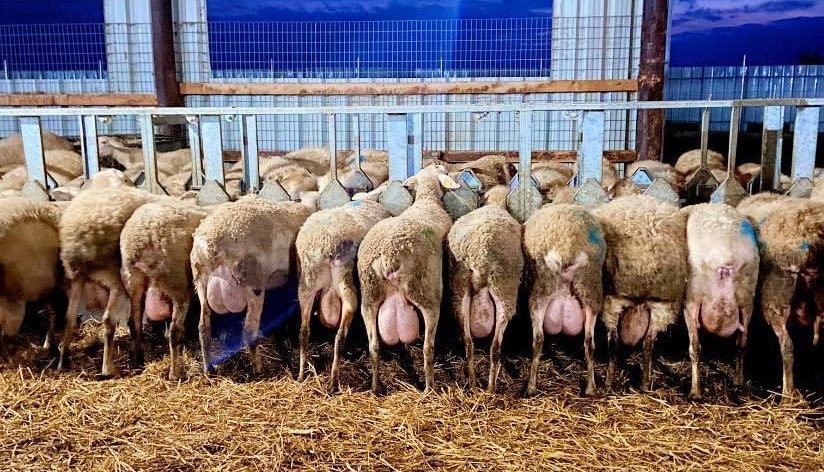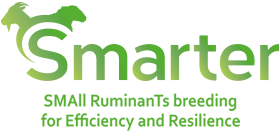
This project has received funding from the European Union’s Horizon 2020 research and innovation programme under grant agreement No 772787.
Genotype by environment (GxE) interactions for feed efficiency indicators in Lacaune sheep from Greece and France
– by S. Vouraki
Improving feed efficiency of small ruminants is a desirable breeding goal to maximize farm profitability, increase productivity and reduce environmental impact. Milk yield and composition could be used as proxy traits of feed efficiency. Genetic selection for these traits using data from different countries could increase progress and benefit breeding programmes particularly in small ruminant production systems that are characterised by great diversity across-countries. The objective of the study was to investigate G×E interactions and hence, the feasibility of genetic evaluation and selection for feed efficiency indicators, namely milk yield and composition, in purebred Lacaune sheep reared intensively in Greece and semi-extensively in France. A total of 1,658 Lacaune ewes from four intensive farms in Northern Greece and 4,859 Lacaune ewes from 186 semi-extensive farms in Southern France were used. Selected ewes in the two countries were daughters or granddaughters of the same rams (6 common sires and 11 common grandsires). Individual ewe milk yield was recorded monthly (5 records per animal) and milk samples (3 monthly samples per animal in early lactation) were collected to assess chemical composition. Based on these records, total milking period milk yield and the respective milk components content were calculated. Results showed a strong genetic correlation for milk yield (0.86±0.13) and protein content (0.88±0.12) between animals raised in the two countries suggesting no evidence of G×E interactions across country and system. In the case of fat content, a moderate to high correlation was found (0.59±0.21) suggesting that some degree of sire re-ranking could be expected. This could be potentially related to the different feeding practices in the two countries. Overall, results suggest that a joint genetic evaluation of Lacaune sheep in Greece and France is feasible. Breeding strategies should be tailored to the needs and conditions in each country subject to accurate and systematic recording of phenotypes of individual animals to improve feed efficiency.
This study was undertaken in the framework of Smarter (WP1).
Sotiria Vouraki1, Stergios Priskas1, Angeliki Argyriadou1, Vasileia Fotiadou1, Jean-Michel Astruc2, Gilles Lagriffoul2, Rachel Rupp3, Georgios Banos4, Georgios Arsenos1
1AUTH, Greece; 2IDELE, France; 3INRAE, France; 4SRUC, UK

Lacaune sheep – © AUTH

